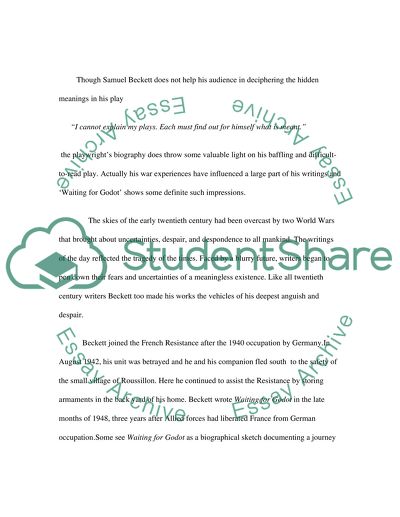Cite this document
(“Samuel Beckett's Waiting for Godot Book Report/Review”, n.d.)
Samuel Beckett's Waiting for Godot Book Report/Review. Retrieved from https://studentshare.org/literature/1505659-samuel-becketts-theatre
Samuel Beckett's Waiting for Godot Book Report/Review. Retrieved from https://studentshare.org/literature/1505659-samuel-becketts-theatre
(Samuel Beckett'S Waiting for Godot Book Report/Review)
Samuel Beckett'S Waiting for Godot Book Report/Review. https://studentshare.org/literature/1505659-samuel-becketts-theatre.
Samuel Beckett'S Waiting for Godot Book Report/Review. https://studentshare.org/literature/1505659-samuel-becketts-theatre.
“Samuel Beckett'S Waiting for Godot Book Report/Review”, n.d. https://studentshare.org/literature/1505659-samuel-becketts-theatre.


